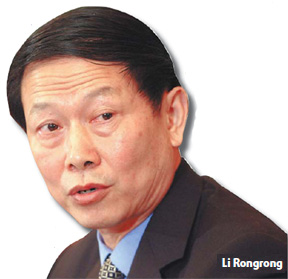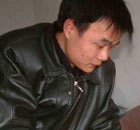Top Biz News
SOE profits show renewed growth
By Chen Jialu (China Daily)
Updated: 2010-01-19 07:54
 |
Large Medium Small |
China's State-owned enterprises (SOEs) are expected to have generated 750 billion yuan ($110.29 billion) in profits and achieved a sales revenue of 12 trillion yuan in 2009, despite the global economic recession, according to figures released by the State assets watchdog.
In the first 11 months of 2009, the 131 SOEs under the direct supervision of the State Assets Supervision and Administration Commission (SASAC) posted a 3.4 percent year-on-year growth in profits to 710.9 billion yuan. This was based on overall operational revenues of 11.1 trillion yuan.

Taxes generated from these enterprises increased by seven percent year-on-year and amounted to 996.3 billion yuan.
Li Rongrong, director of the SASAC, announced the figures at a year-end conference late December, outlining the regulator's plans for 2010. The event was attended by senior executives from many of the centrally-administered SOEs.
Speaking at the conference, Li said:" We overcame many difficulties and managed to maintain stable profit growth this year, despite the global economic crisis dampening external demand."
In the first 10 months of 2009, SOE revenues and profits dropped 0.4 percent and 6 percent respectively year-on-year. As an early casualty of the financial crisis, SOE profits in 2008 were 696.18 billion yuan, down 30.8 percent compared with 2007.
Li said that effective market exploration had contributed to the 2009 results. Many enterprises, he said, accelerated their moves towards globalization, but had also benefited from the expansion of the domestic market.
According to Li, measures to lower operational costs had also proved effective. Budget management and the centralized control of group funds had been increasingly adopted in order to lower costs, whilst structural adjustment had also contributed to a rise in profits.
Li said: "China will continue to push ahead with the restructuring of its SOEs next year and will encourage State-owned companies to pursue mergers and acquisitions across different regions and countries. We will also back private enterprise investments in State-owned entities."
Sounding something of a warning tone, Li said the foundation for recovery was not yet solid enough and emphasized that companies needed to enhance their innovative capacity, strengthen their core competitiveness, avoid blind expansion, control risks, and make cautious investments in 2010.
In line with this policy, the number of China's centrally-administered SOEs was reduced to 129 enterprises, compared with 131 last December.
The SASAC is aiming to reduce the number of centrally-administered SOEs to between 80 and 100 by 2010 through a policy of mergers and restructuring. It had responsibility for 196 centrally-administrated SOEs when it was first established in 2003
The average annual pay for SOE senior executives last year was around 600,000 yuan ($87,840), which was "not too high", Li said during a forum at Peking University earlier this month.
He said the pay for SOE executives was closely related to the performance of their businesses. According to Li, the basic payment for senior managers of SOEs only accounted for one third of their total salary. The other two thirds was related to their performance during their contract term, typically three years.
Statistics show the average annual pay for SOE executives was 350,000 yuan, 430,000 yuan, 478,000 yuan and 550,000 yuan between 2004 and 2007, showing an annual increase of around 14 percent.
The highest earning SOE executive in 2007 was Wang Jianzhou, chairman and CEO of China Mobile, who earned 1.3 million yuan ($190,320).













